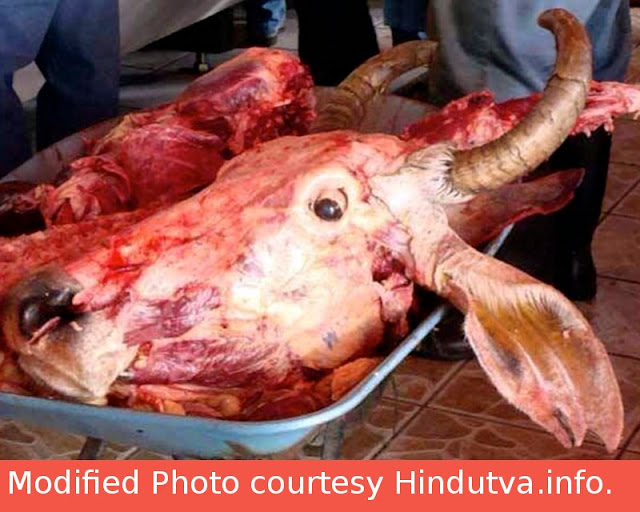#053, Should we lose self=consciousness often?
SAMADHI
The commonest meaning of samadhi is "tomb" or "monument for a dead person". The adjective "Maha (Great)" is added to the samadhi of great yogis out of reverence, to make the samadhi greater. When used for chartered jet-set Air Conditioned Mansion business type Maha Yogis, the Mahasamadhi may become a Maha Bar Rin Supreme Excel Soap.
Yoga teachers often speak of a state of a person reaching a state of "samadhi" during meditation and contemplation. There is a claim that some of them become unconscious for several hours. There is also a claim that they enjoy supreme bliss during their samadhi. There is no way to verify the truth or veracity of these claims made by the gurus or the disciples/devotees. We may either believe or not believe. I shall not question both the attitudes, because the facts are not verify-able.
I shall take a simple meaning of ecstasy. This state of emotional ecstasy may arise when a person experiences utmost joy or even misery. This can happen for anybody without any yogic training. It has nothing to do with meditation or monkhood. For example, if Venus Williams wins Wimbledon or some scientist wins a Nobel prize they can go into a state of ecstatic joy. They may kiss the ground or look at the sky and pray the almighty or just close their eyes. A maiden or a boy undergoing hisher first sexual orgasm can also enter this samadhi. Musicians also go into this type of raptur. Thus samadhi has nothing to do with ascetism, monkhood or singing and chanting.
In Indian culture, there is a step called "Pani Grahan`am" in marriages. The priest uttering the sacred verses, places the hand of the bride in the hands of the bride groom. When both hands come together, sensation passes on through touch and any one or both of the couple may go into ecstasy for a few moments. It is just nothing but samadhi. When a spiritual teacher touches the hands of his disciple, if a current flows from the guru to the disciple, the ecstasy will only be similar. Calling it divine and equating it to seeing God etc. is disciple's choice.
I shall give a simpler work place example. Suppose: You are working in an Office. Your boss unduly praises you one day without notice and offers you a raise instantly. You will be in a state of ecstasy (samadhi), though you do not become unconscious. Your mind continues to be with your boss and work even if you go home riding the byke without causing accidents. You and your wife go shopping. At one place you may start the byke and speed away, leaving your wife behind. She will be running and chasing your byke shouting. She will not say "Are you in samadhi!" because she does not know this second meaning of samadhi and considers the word as bad because she associates it with death. She will only say "What happened for you today? You are forgetting your own wife simply because your boss gave you a raise?"
YOGA SAMADHI
Here, there is a difference between advaita (monistic) teachers and dvaita/visishtadvaita teachers.
Samadhi in monism:
A person after getting of his ignorance (avidya), attains knowledge (gnaana) of who he is. That is he realises that he is nothing but the Supreme God. According to monism, a person is God, whether he realises it or not. But when he realises that he is the Supreme God, he cannot distinguish between what is inside and what is outside. In strict sense, there cannot be a case of a person becoming unconscious here, because this knowledge is perennial and permanent. After realising this oneness, every moment is a moment of bliss. There is no need of becoming unconscious. Thus every moment is samadhi.
Question: HOw many hours/months/years I have to meditate to attain this samadhi?
Ans: Once we know that we are the Universe itself or a part of the Universe, no more meditation will be necessary. The next step is to practise the knowledge. It is the really difficult area. Theory part is complete. Practicals remain. From that point, we cannot eat turtles or shad fish because we see ourselves in them. We cannot sacrifice goats because we see ourselves in them. We cannot even cut an orange because the orange contains the living seeds of the orange tree which it generated for expanding its orange clan or dynasty. There we have to go for the need for survival. We cannot starve by stopping eating everything. We have to minimise our needs. We have to leave adequately for the calves while milking cows. We have to restrict ourselves even in eating vegetarian food.
Everyday in life becomes a test case for the knowledge of the universality.
Samadhi in dualism/Improved dualism (Dvaita/Visisht`advaita).
Here the human soul is different from the Supreme Spirit. The human soul (atma) gets engaged to the Supreme Spirit (Paramaatma). Yoga is yoking the human with the God. This is nothing but concentrating the mind on the Supreme Spirit and keeping it engaged. This can happen during meditation or bhajan (chanting the glories of God). This can happen in Christianity, Islam and Hinduism. This yoga is nothing but the path of devotion. A person who is continuously linked with the God whether called Krishna, Alla or Christ is a yogi. Becoming unconscious and entering ecstasy is only a temporary affair. A true seeker is yoked 24/7/365, while doing his daily duties. Daily affairs and yoking to God are in two separate arenas. It is like somebody seeing the TV and cutting the vegetables at the same time. If he does it carefully without cutting his fingers while looking at TV, there is a success.
Thus dualism/improved dualism can pave way for a Universal religion.
Question: Is there a possibility for integrating atheism and monism (advaita philosophy).
Answer: There seems to be. The original Advaita philosophy accepts the existence of God and insists the human as a part of the God. The Advaita preachers do not accept atheism. The atheism does not deny existence of superhuman powers. But it disputes calling such as superhuman powers as God or Creator or Protector. Superhuman powers are also a part of this Nature and Universe. There cannot be supernatural or super-universal powers because nature and universe are one and the same, and as on date it is the ultimate. Tomorrow, if science discovers that there are several universes, then at the most we shall have a mega-universe. An atheist who realises that he is a part of this Universe and behaves in integrates with it, he is near to Advaita philosophy. But, still the subtle difference remains because the words "Creator and almighty God" are not used.
To be continued on some other day. In the meantime, I welcome questions, particularly from Mr. Vamsee who wrote his comment on samadhi.



Comments
One cannot get such circumstances in life frequently. That is why the yogis and munis take to practices such as consumin bhang, opium, etc., and modern youth (and old people)take to drugs!
It is not correct to say that the Samadhi state is something very desirable; it may be as good as sleep only. But, somehow we have got this importance for samadhi.
As long as Man does not unravel the mystery of what was before birth (I mean conception in the womb) and after death, it is better to leave all consideration about mukthi, Samadhi, etc., and divert that energy into living as good people and try to improve the state of affairs in this world.